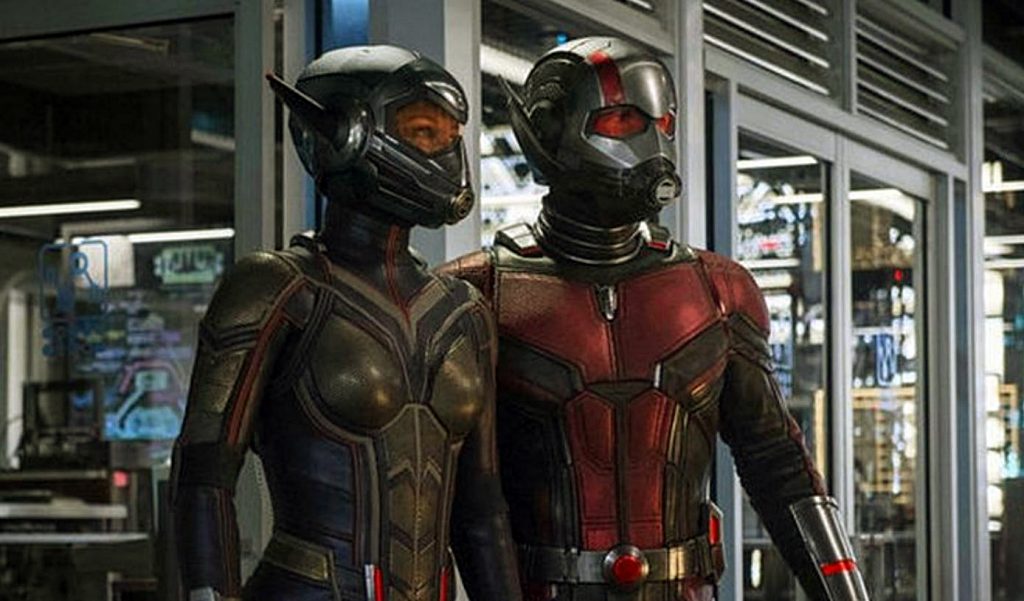Too Little, Too Late, by Tyler Smith
12 Jul
Peyton Reed’s Ant-Man and the Wasp is a pleasant enough diversion, with some clever sequences, but never really adds up to anything more than a placeholder within the Marvel Cinematic Universe. Perhaps that’s okay, though. With the weight of everything that has been going on in the MCU, maybe a light, effects-heavy romp is just what the doctor ordered. Certainly, one of the interesting elements of this franchise is that we can have different tones from one film to another, with the Captain America films feeling notably different than the Guardians of the Galaxy movies, for example. However, ten years in and we’ve been trained to understand that everything affects everything else and that no hero, regardless of how isolated he may seem, is ever truly alone. So while Ant-Man and the Wasp is often a very amusing film – sometimes downright funny – it’s hard to reconcile it with the current tone of the larger franchise. And so the feel of the film is somewhat diminished and I found myself adopting a fatalistic mindset, wondering what the point of all this is, knowing what we do about the larger universe.
The story picks up shortly after Captain America: Civil War, in which Ant-Man played a crucial role in the pivotal battle. Since then, Scott Lang (Paul Rudd) has been placed under house arrest, waiting out his sentence with occasional visits from his beloved daughter. Meanwhile, Hank Pym (Michael Douglas) has been working with his daughter Hope (Evangeline Lily) on a way to recover Pym’s wife, Janet (Michelle Pfeiffer), from the Quantum Realm, which she disappeared into decades before. Also jumping into fray is a mysterious woman called Ghost (Hannah John-Kamen), whose ability to phase through objects makes her a formidable enemy. Other scientists and businessmen – played by veteran character actors like Laurence Fishburne and Walton Goggins – show up to further complicate matters.
If this sounds like a lot of characters, that’s because it is. While the title suggests that there are two leads in the film, the eventual film is informed much more by its ensemble than by any singular character, titular or not. This is probably a wise choice, as it became clear to me in the first Ant-Man that Paul Rudd is not able to carry this franchise on his own. While Rudd is a strong actor in the right roles, he doesn’t seem able to elevate the character of Ant-Man, who may well be the most simplistic character of the film, while also being frustratingly contradictory. At times, he appears to be an idiot, tripping over his words and doing the wrong thing. Then, a couple scenes later, he is brilliant, improvising technical solutions to complex scientific problems. Add to that a strange earnestness, as he lectures others about the difficult lives of ex-cons, and we have a character that is hard to get a handle on, which is death for a superhero movie. Again, this is not to imply that Paul Rudd is a bad actor in general; just that the writers didn’t give him a lot to work with here (or maybe too much), and he often appears lost.
The rest of the cast turns in solid work, with Michael Peña stealing the show whenever he’s on-screen. His Luis is a hyperactive, optimistic ex-con whose energy is infectious. He elevates every scene he is in until it becomes a delightful comic set piece. Walton Goggins’ ruthless businessman character is often superfluous, until he is face to face with Peña. Suddenly, they develop a back and forth that is so hilarious that I often wished the movie would abandon its primary story and just follow these guys for a couple hours.
There’s nothing officially wrong with the story as is. Much like the first film, the stakes are high even in the midst of a fairly narrow scope. And yet for some reason it never quite comes together. The humor, so often the glue that holds these Marvel films together, here acts as a distraction, undercutting the importance of our characters’ goals. And suddenly something that should mean so much to the audience – due to its value to the characters – slowly dissolves into a mundane McGuffin.
Ant-Man and the Wasp is, in many ways, a perfectly serviceable film. The action is fun and the characters are interesting enough. Unfortunately, as the world of Marvel falls into complete chaos, with only a handful of our favorite characters left behind to grieve their massive loss, a film that is merely functional just doesn’t cut it anymore. The downside of Marvel’s training its audience to think of all of these films as interconnected is that it becomes increasingly difficult for us to reconcile conflicting tones from one film to the next. The Ant-Man films have always seemed to me like outliers, eager to break into the big time, but lacking both the weight and the conviction to be a vital part of something bigger. And the sad result is that everything in these films winds up seeming so very small.




No comments yet